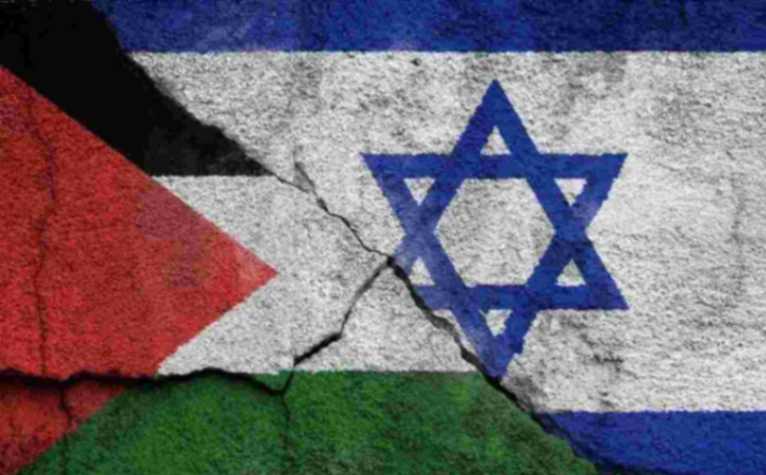Unpacking the conflict, its roots, and the current humanitarian crisis in Gaza.
In the heart of the Middle East, a long-standing conflict continues to shape the lives of millions. The Israel-Palestine issue, with its roots dating back over a century, drew global attention again after the last few weeks’ events. The abundance of misinformation available online can be daunting, making it all the more important to form informed opinions and be responsible global citizens, which is necessary in such turbulent times.
For a very brief background, The 1917 Balfour Declaration promised a Jewish homeland in Palestine to aid persecuted European Jews, sparking tensions with residing Palestinian Arabs. After the 1948 Arab-Israeli war, Israel emerged, leading to the displacement of 700,000 Palestinians, and this day was marked as Nakba (a catastrophe) by the Palestinians. In 1967, Israel occupied Gaza, the West Bank, and East Jerusalem, areas that had held Palestinians for generations, and established Jewish settlements. UN calls for withdrawal were refused. The Palestinian people saw this as an illegal occupation, and one major group resorting to violence to fight it (for a lack of Palestine’s military) grew in prominence in the 1980s. This organisation was called Hamas, and it took control of Gaza in 2006 after an election win. Israel and Hamas have fought many wars, but tensions have never subsided.
A sudden escalation of the issue began on October 7, when Hamas launched an attack on Israel, claiming over 1400 lives, mostly civilian, and taking 230 hostages. In retaliation, the Israeli Prime Minister declared war and stated that Hamas would “pay an unprecedented price”. On November 6, The Palestinian Health Ministry said that Israel’s airstrikes have killed more than 10,000 people in Gaza, including over 4000 children. A report was also published detailing the names and ID numbers of every person killed, a day after US President Joe Biden questioned the death toll.
The world is divided over the topic of Israel’s right to defend itself. It is important to recognize and grieve the effects of Hamas’s actions, and it is also necessary to note that Hamas does not represent the Palestinian cause. The increasing Israeli occupation of Palestine has never been justified, and neither was ever legally sanctioned by the United Nations. From its position of power, Israel has been controlling food, water, electricity, and the free movement of the people in Gaza since 2007 and is currently causing harm to life by having disrupted all of that since the events of October 7. In addition to that, with the enormous backing and financial aid that it receives from the USA, an undeniable power imbalance exists between the two regions that Israel has exploited for decades and is continuing to. Targeted bombings and air strikes in schools, hospitals, and residential buildings have made it clear that the continuous and purposeful killing of civilians is taking place. In discussions all over the world, this is being called a “textbook case of genocide”.
On October 13, Israel had ordered over 1 million Gazans to evacuate to the southern part of the territory as targeted attacks on Hamas lay ahead. The UN stated that suddenly evacuating about half the population would have devastating humanitarian consequences.
Protecting civilians does not mean ordering one million to evacuate to the south, where there is no shelter, no water, no medicine, no fuel, and then continue to bomb the south itself.
UN Secretary-General, Antonio Guterres.
Moreover, due to how Israel has handled refugee needs in the past, many Palestinians feared they would not be able to return and would be gradually displaced to Egypt’s Sinai, which is near Gaza’s south. The United Nations Human Rights Watch has said that Israel’s siege of Gaza and its evacuation order could lead to the forcible transfer of civilians and be in breach of international law. This is a recurring theme in Israel’s occupation of Palestine, as the refusal to withdraw from Gaza, the West Bank, and East Jerusalem, as well as the setting up of establishments in those territories, have been condemned and labelled flagrant violations of international law.
To add to the alarming death tolls, there is an extreme shortage of electricity and medicine, and almost half of the hospitals in Gaza are no longer functioning and others are getting bombed. The UNRWA stated that it had to significantly reduce its humanitarian operations because fuel had run-out and the delivery of more had been restricted by Israel in fear of its misuse by Hamas. The UNWFP has said that ‘insane bureaucracy’ has slowed down the flow of aid, as only about 12 lorries carrying food and water are crossing into Gaza per day. This number was 500 before the war began. Moreover, telecommunication has been destroyed by the bombing, making it harder for aid to reach the right places in time. The current humanitarian situation in Gaza, therefore, remains dire.
There is no doubt that discussions and opinions should leave room for nuance; however, it should not be difficult to stand for humanitarian rights when needed most. The US, Israel’s major ally, having provided billions in military and economic aid, along with the EU, has condemned the actions of Hamas. Russia and China have not done the same and have stated neutrality. Hezbollah, a Lebanese militant group, is a supporter of Hamas and has been exchanging fire with Israeli forces.
The United Nations General Assembly has passed a resolution calling for an immediate humanitarian truce between Israel and Hamas and demanding aid access to Gaza. 120 countries voted in favour, 14 voted against (including Israel and the USA) and 45 others abstained. We are yet to see what this step will do for the suffering people of Palestine, but in any case, history will remember.
Read also: Stop Genocide in Palestine- Sfi Protests at Embassy of Israel
Featured image source: World Peace Tracts
Arshiya Pathania





Comments are closed.